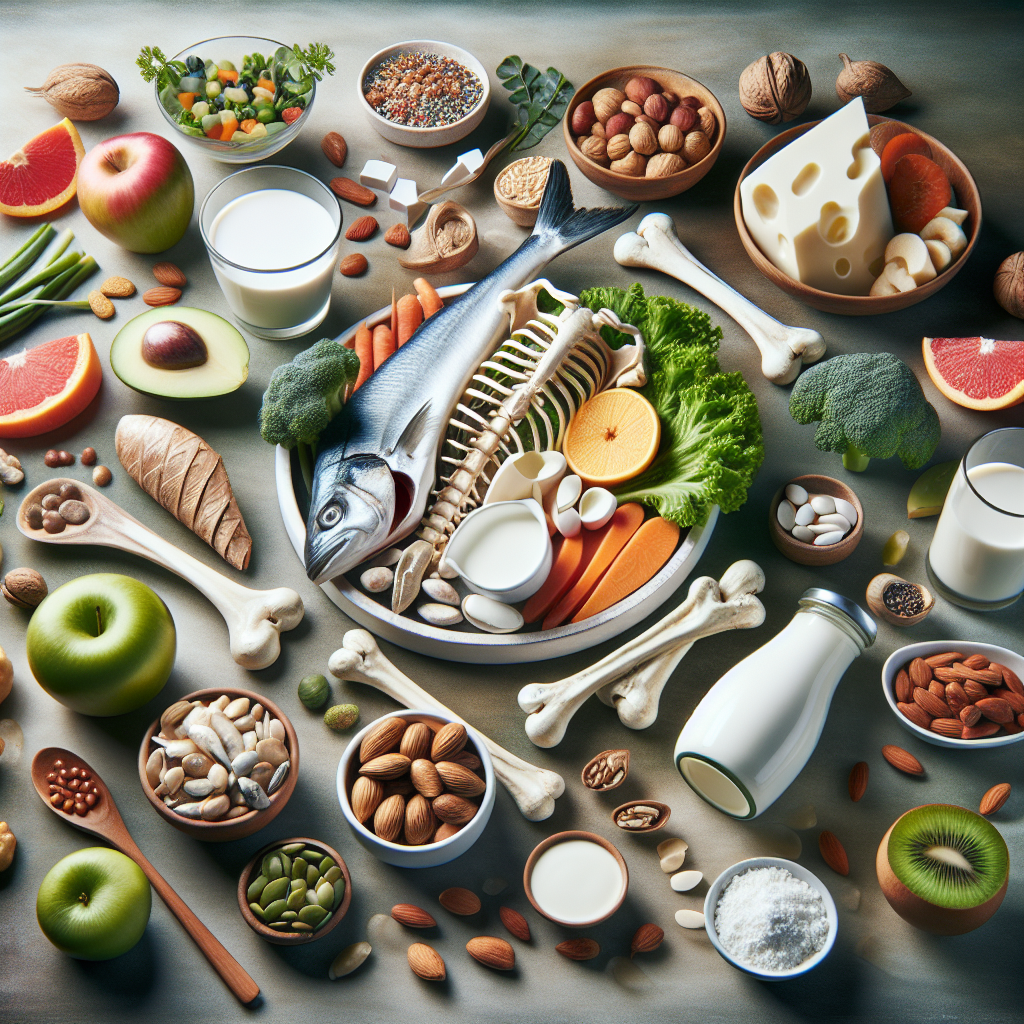Foods for Strong Bones: Nutrition and Health
Bone health is essential at any age and it is important to know how to take care of our bones through proper nutrition. Whether you're a mom concerned about your child's development or looking for solutions to keep your bones strong and healthy, this comprehensive guide will provide you with the information you need for proper nutrition.
The Importance of Nutrition for Bone Health
Nutrients are not only fuel for our bodies, they are essential elements for the development and maintenance of a strong bone structure. Calcium is often cited as the most important component for bone health, but it is important to know that other nutrients such as vitamin D and K, phosphorus, magnesium and protein are also crucial. Proper nutrition can prevent various bone conditions, such as osteoporosis.
In this section, we will detail the main groups of nutrients and their role in bone development and strengthening.
Food Sources of Calcium
Calcium is the most abundant mineral in the body and is vital for the development and strengthening of bones. Excellent sources of calcium include dairy products such as milk, yogurt and cheese. However, for people who are lactose intolerant or choose to follow a plant-based diet, there are great alternatives such as almond milk, broccoli, spinach and tofu. Include these foods in your daily diet to ensure you meet your calcium needs.
Vitamin D: An Essential Aid to Calcium Absorption
Without vitamin D, calcium cannot be absorbed efficiently. This vitamin, which works more like a hormone, can be obtained through exposure to the sun, but also from foods such as fatty fish, eggs and fortified cereals. Also, vitamin D supplements may be an option for those who cannot get enough of the vitamin from their diet or for periods when sun exposure is limited.
The Role of Vitamin K in Bone Health
Vitamin K is less known, but it plays a crucial role in maintaining bone health. It helps form the proteins that are needed to keep calcium in the bones. Foods rich in vitamin K include green leafy vegetables such as kale, spinach and salad greens, as well as fermented vegetables.
Phosphorus and Magnesium: Calcium-Carrying Minerals
Phosphorus and magnesium are minerals that help absorb calcium and support bone structure. Foods like pumpkin seeds, almonds, beans and whole grains are rich in these essential minerals and should not be missing from your diet.
Proteins: The Building Blocks of Bones
The building blocks of bone, proteins, are vital for bone strengthening and tissue regeneration. Optimal sources of protein include lean meats, fish, vegetables and nuts. It is important to balance your protein intake with other necessary nutrients to avoid triggering calcium loss from your bones.
Conclusion
Maintaining a strong bone structure is a complex process that requires a balance between various essential nutrients. By including food sources of calcium, vitamin D and K, phosphorus, magnesium and protein in your daily diet you can ensure the health and strength of your bones. Remember that a balanced diet, along with an active lifestyle and sun exposure, can make a significant contribution to bone health. If you have additional questions or need personalized advice, feel free to visit our health and nutrition section or subscribe to our newsletter for the latest information and advice.














































































































































